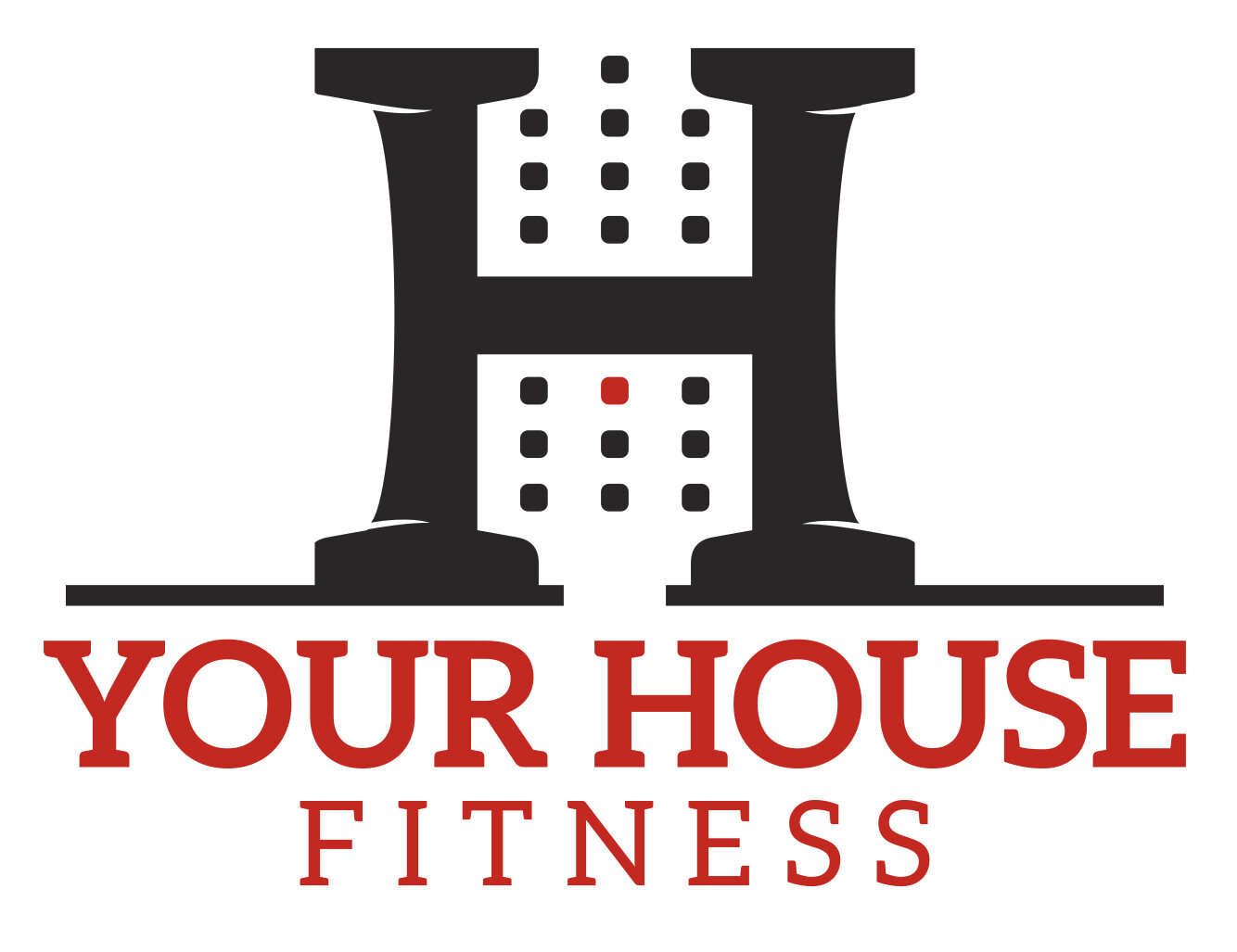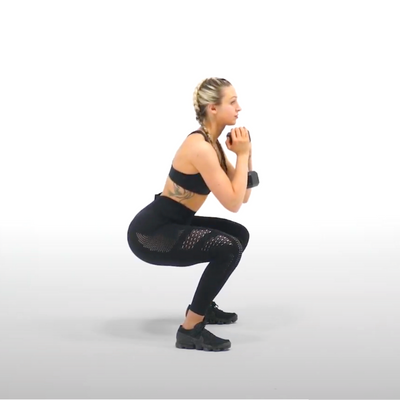Exercise Tutorial: Goblet Squat
Published: June 27th, 2020
1st Revision: March 22st, 2023
Table Of Content
What Is a Goblet Squat
The Goblet Squat (also known as the Dumbbell Goblet Squat) is a squat variation in which you hold a dumbbell in front of your chest using both hands while performing the squat. It's a great lower body exercise that anyone can do to build their strength.
How to Do Goblet Squat
Start in a comfortable stance, with feet about shoulder width apart.
Grab a weight (KB, DB, or MB) and hold it with both hands in front of your chest.
Engage your core and bend at the knees to lower yourself into a squat position while maintaining a flat back.
Squat down until your thighs are parallel to the floor or there's a 90° bend in the knee.
Pause briefly at the bottom position and come back up to a tall standing position.
Goblet Squat Muscles Worked
Goblet Squat Form
Maintaining your form during the Goblet Squat is crucial to avoid training improper movement patterns as well as to prevent injury. Here are some things to consider when performing the exercise:
Maintain a neutral spine.
Keep your core engaged.
Ensure that your hips, knees, and ankles are aligned.
Place the weight over the midfoot, with heels and toes down.
Keep your chest and eyes up.
Avoid locking out your knees at the top position of the squat.
Goblet Squat Benefits
The Goblet Squat offers numerous benefits that will make you want to incorporate it into your workout routine starting tomorrow! Here are a couple of advantages:
Builds lower body strength and power.
Improves muscular endurance.
Enhances core stability and strength.
Can be integrated into HIIT workouts and circuit training.
Requires minimal equipment.
Loads the forearms and increases grip strength.
Why Is the Goblet Squat Useful
The Goblet Squat is useful because it is a great lower body exercise for building strength, muscular endurance, and power. It serves as a progression from the air squat, making it a simple exercise that anyone can do.
Additionally, the Goblet Squat is valuable as it mimics everyday movements like rising up from the couch or squatting down to pick something up. It is also highly versatile and adaptable. You can perform it with a light weight to learn proper form before progressing to a Back Squat, or you can load it heavily for experienced individuals looking to build strength.
Furthermore, the Goblet Squat can serve as an excellent alternative to the Back or Front Squat for clients who are uncomfortable or experience back pain during those exercises. With the weight positioned in front of the chest, it promotes a more upright posture, forcing clients to engage their core and maintain stability to protect the spine.
Goblet Squat Variations
Kettlebell Goblet Squat
Sumo Goblet Squat
Goblet Box Squat
Banded Goblet Squat
Goblet Squat with Plate
Heel Elevated Goblet Squat
Begin by standing on a slightly elevated surface (plates, bench, etc) with your heels, feet hip-width apart, holding a dumbbell at chest level with both hands, elbows bent and close to your body. Lower into a squat by pushing your hips back and bending your knees while keeping your chest up, then return to standing, ensuring you're driving primarily through your heels.
Kettlebell Goblet Squat
Similar to the Dumbbell Goblet Squat, the Kettlebell Goblet Squat utilizes a kettlebell instead. You can grab the kettlebell either by the handles with both hands or by the bottom part.
Sumo Goblet Squat
Similar to the Goblet Squat, the only thing that changes is the position of the feet. You'll want to place your feet a bit wider than usual, which is why they call it the Sumo Goblet Squat.
Goblet Box Squat
The Goblet Box Squat is a variation were you stand in front of a box or bench, and squat down until your glutes lightly touch the box, then drive through your heels to stand back up.
Banded Goblet Squat
A Banded Goblet Squat is a squat variation where you position a resistance band around your thighs, just above the knees, and perform a goblet squat, which encourages proper form and adds extra resistance, particularly engaging the glutes and outer thighs.
Goblet Squat with Plate
A Goblet Squat with Plate involves holding a weight plate close to your chest with both hands, performing a squat by pushing your hips back and bending your knees while keeping your chest upright, then driving through your heels to return to the starting position.
Goblet Squat Alternative
What's the Difference Between the Sumo Squat vs Goblet Squat
The Sumo Squat differs primarily in foot position and muscle emphasis, where your feet are wider than hip-width apart and toes are pointed outwards, leading to a greater focus on the inner thighs and glutes. The Goblet Squat, on the other hand, features a narrower, hip-width stance with feet pointing forwards, and while it still works the lower body, it places a stronger emphasis on the quads and also engages the upper body due to holding the weight at chest level.
Frequently Asked Questions About the Goblet Squat
Why Are Goblet Squats Great for Building Strength?
This study found that goblet squats are effective for strengthening the lower body and improving hip range of motion. They are particularly beneficial for patients recovering from injuries, as the front-loaded design can help relieve knee pain during squatting. This makes the goblet squat a valuable squat variation, especially for individuals who experience discomfort with traditional squats. As a result, goblet squats are commonly used in clinical settings.



